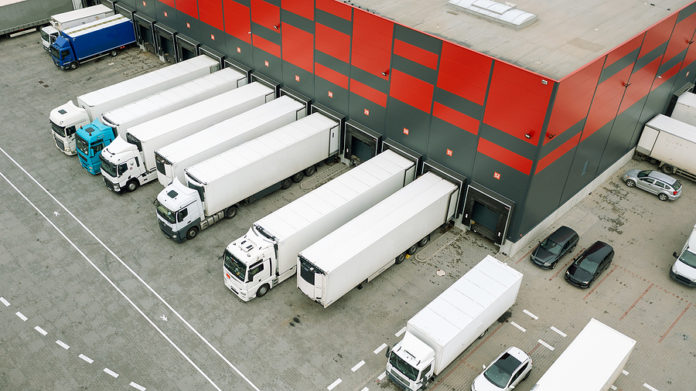
By Rafael Granato, VP of Marketing, YMX Logistics
Key takeaways:
-
Yard inefficiencies are strategic risks: Delays, idle trailers, bottlenecks, and safety issues in yard operations quietly erode margins, inflate costs, and damage customer trust.
-
Technology without process falls short: Yard Management Systems (YMS) alone don’t solve fragmentation; standardized playbooks, accountability, and trained teams are essential.
-
Yard Operating System (YOS) as a solution: Forward-thinking companies are adopting YOS frameworks — integrating visibility, standardizing SOPs, focusing on outcomes, and embedding sustainability — to transform the yard into a performance driver, often with help from specialized partners.
When executives discuss supply chain transformation, the yard rarely makes the agenda. Warehouses get robotics. Transportation gets telematics and real-time visibility. Data teams get AI dashboards. Meanwhile, yard operations, the connective tissue between all these nodes, often run on radios, clipboards, and legacy processes and equipment.
Most enterprise shippers are realizing that yard operations are a strategic pressure valve. When it runs well, inventory flows, carriers stay loyal, and costs remain under control. When it doesn’t, margins erode, service falters, and compliance risks rise. Let’s dive into it.
The true cost of neglect
For many organizations, the yard looks small on the P&L. But its inefficiencies quietly inflate costs across the enterprise:
- Idle assets: Trailers sit inactive for 80% of their cycle time, tying up working capital.
- Hidden penalties: A single 2.5-hour delay can add $50 to $100 per load. At scale, this runs into millions annually.
- Throughput bottlenecks: Congested docks slow warehouses already strained by labor shortages.
- Product integrity risk: In food and beverage, delays mean spoilage, rejected loads, and lost sales.
- Safety and liability: Accidents in the yard impact more than insurance premiums; they damage brand trust.
These aren’t operational inconveniences. They are strategic risks that directly impact profitability and the confidence of customers and partners.
Why technology alone falls short
Yard Management Systems (YMS) promise visibility, but many executives are left questioning the ROI. Visibility without alignment only exposes fragmentation:
- Different playbooks across sites create inconsistency and limit scalability.
- Disconnected systems leave leaders blind to the full flow of information.
- Untrained teams generate alerts but no action.
- Sustainability blind spots mean emissions, idle time, and compliance issues remain unresolved.
Technology is valuable, but only when deployed on top of disciplined processes and clear accountability.
The yard operating system: A strategic framework
Forward-looking enterprises are adopting a Yard Operating System (YOS). This isn’t another software platform. It’s an operational framework that elevates the yard from tactical to strategic. For food and beverage executives, the yard is more than a staging area. It’s a strategic activity that builds stronger relationships and improves cost and reliability in a tight market.
Some of the key elements include:
- One playbook across the network: Standardized SOPs, KPIs, and accountability at every facility.
- Integrated visibility: Seamless connections between yard, transportation, and warehouse data for better planning and more effective exception handling.
- Outcome-based partnerships: Vendors measured on safety, throughput, and sustainability, not headcount.
- Continuous improvement: Real-time insights to prevent small issues from becoming systemic failures.
- Sustainability by design: Emissions tracking, idle reduction, and EV yard trucks as core operating metrics.
Where to start
Yard transformation doesn’t happen overnight. But executives can accelerate results by focusing on five priorities:
- Audit the baseline: Dwell time, safety records, compliance gaps.
- Establish standards: SOPs and training that scale across sites.
- Redefine partnerships: Move beyond transactional contracts to outcome-based accountability.
- Deploy technology with intent: Support disciplined processes, don’t mask broken ones.
- Measure what matters: Safety, sustainability, service, and ROI, not just cost.
Partnering for success
Not every organization has the in-house expertise, bandwidth, or resources to overhaul yard operations on their own. And that’s okay. The fastest way to accelerate results is often to partner with a yard logistics company that already embeds a Yard Operating System into its core operations.
These partners bring more than labor and equipment. They provide the process discipline, trained talent, and integrated technology required to run yards consistently across multiple sites. They’re also accountable for outcomes, not just activity, ensuring improvements in throughput, safety, and sustainability are built into day-to-day operations.
For executives, this means fewer distractions and confidence that the yard is no longer a weak link but a performance lever.
 Rafael Granato, VP of Marketing at YMX Logistics, leads brand strategy, thought leadership, and positioning, showcasing innovation, customer value, and industry leadership in yard operations and logistics.
Rafael Granato, VP of Marketing at YMX Logistics, leads brand strategy, thought leadership, and positioning, showcasing innovation, customer value, and industry leadership in yard operations and logistics.
Credit: Source link












